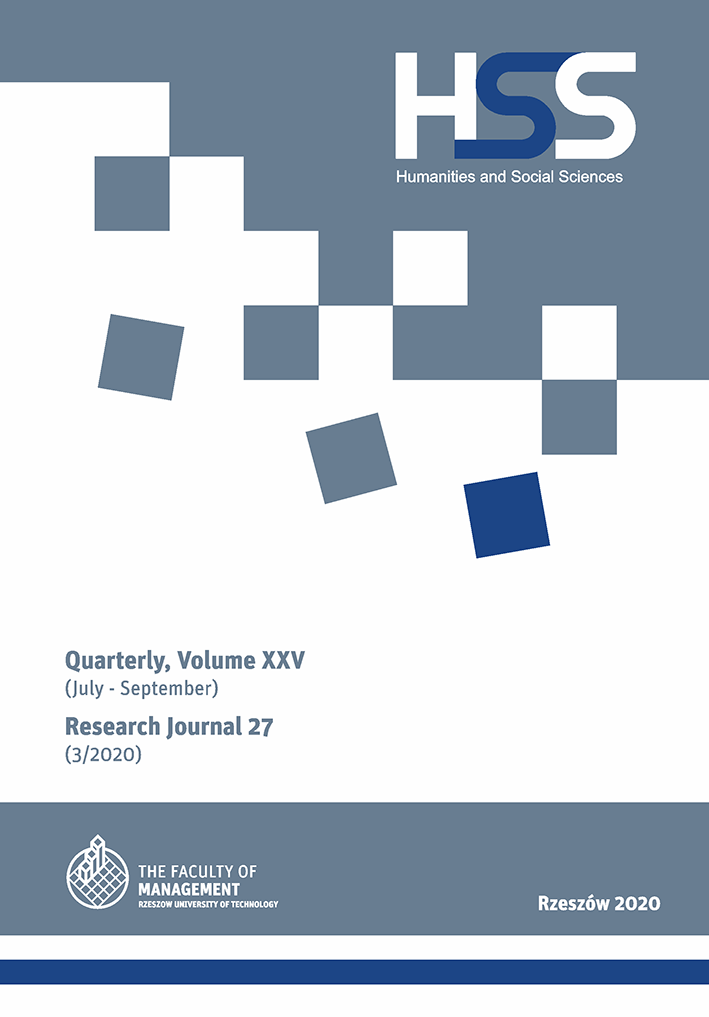Abstrakt
This paper examines the influence of state authorities on the approval of church-state relations. State power constantly intersects in various levels with church institutions due to the specific nature of its activities. The church and the state cooperate in the development of philosophical and social concepts, specific social programs, andin determining the progress and direction of society. The article demonstrates that anthropocentric ideas of Christianity are of great importance in ensuring the stability and effectiveness of state and church relations. The social and political partnership of the authorities and the church is always built on the reconciliation of mutual interests of the partner entities, and political relationships can take many forms: dialogue, partnership, cooperation, indifference, rivalry, conflict, domination and subordination. The historical forms of state-church relations are characterized through an in-depth analysis of different countries, in particular Russia and Poland, and we outline prospects for further development We argue that the Christian worldview is deeply rooted in the Ukrainian mentality, socio-philosophical space, and state-building processes. An existential interpretation of time is revealed as an important constant in the formation and construction of anthropological and social space. It is especiallyimportant to take into account the phenomenon of human rights and the education of citizens. We argue that a society with an awareness of the primacy of an individual over society will reject and oppose totalitarian ideologies. In order to ensure the partnership and stability of public authorities and the church, representatives of the state must promote the implementation of Christian moral-ethical and anthropological ideas and ideals into social practice. By being aware of their calling, government officials can positively influence the development of legal relations in the church dimension of being. Priority area should include the educational, legal, and religious dimension of the existing Ukrainian state.
Bibliografia
Appeal from the leaders of the Christian churches of Ukraine to legislators and the public regarding the proposal to introduce new ways of registering individuals in Ukraine. (2008). Socially oriented documents of the Ukrainian Greek Catholic Church (1989–2008). Lviv: Publishing house of Ukrainian Catholic University.
Bart, K. (2006). Justification and law. Moscow:St. Andrews's Biblical Theological Institute.
Blihar, V. (2013). State-Church Relations as Explication of the Dichotomy of Power and Society in European Philosophy: A Monograph. Lviv: LvDUVS.
Bogolepov, A. (1958). Church under the rule of communism. Munich.
Dore, D. (2001). The Spirit of Europe: Lecture by Monsignor Joseph Dore at the Catholic University of Budapest. „Communion: International Theological Journal” No. 3.
Farkhitdinova, O. (2011). Christian ethics, secular morality and secular law as scenarios of modern religiosity. The Social Doctrine of the Church and the Present: Materials of the International Scientific and Practical Conference, May 12–13, 2011 Orel.
Hildebrand, D. (2000). Metaphysics of communication. St. Petersburg: Aletheia.
Humboldt, von W. (2009). Positive and negative state. Liberalism: an anthology. Kyiv: Smoloskyp.
Isaev, A. (2011). Prospects for the development of socio-political partnership between government body of state authority and the Russian Orthodox Church: regional aspect. The Social Doctrine of the Church and the Present: Proceedings of the International Scientific and Practical Conference, May 12–13, 2011 Orel.
Mannheim, K. (2008). Ideology and Utopia. Kiev: Duh i Litera.
Parsons, V. (2006). Public Politics: An Introduction to the Theory and Practice of Politics Analysis. Kiev: Publishing House of Kyiv-Mohyla Academy.
Suremen, F. de. (2003). Teaching the basics of religion in secular education system of France. „Duh i Litera”, 11/12.
Sutton, D. (2003). What attitudes affect the educational situation in the country?, „Duh i Litera”, 11/12.
Vloet, J. van der. (1994). The anthropological significance of Sunday. „Communion: International Theological Journal” No. 4.


